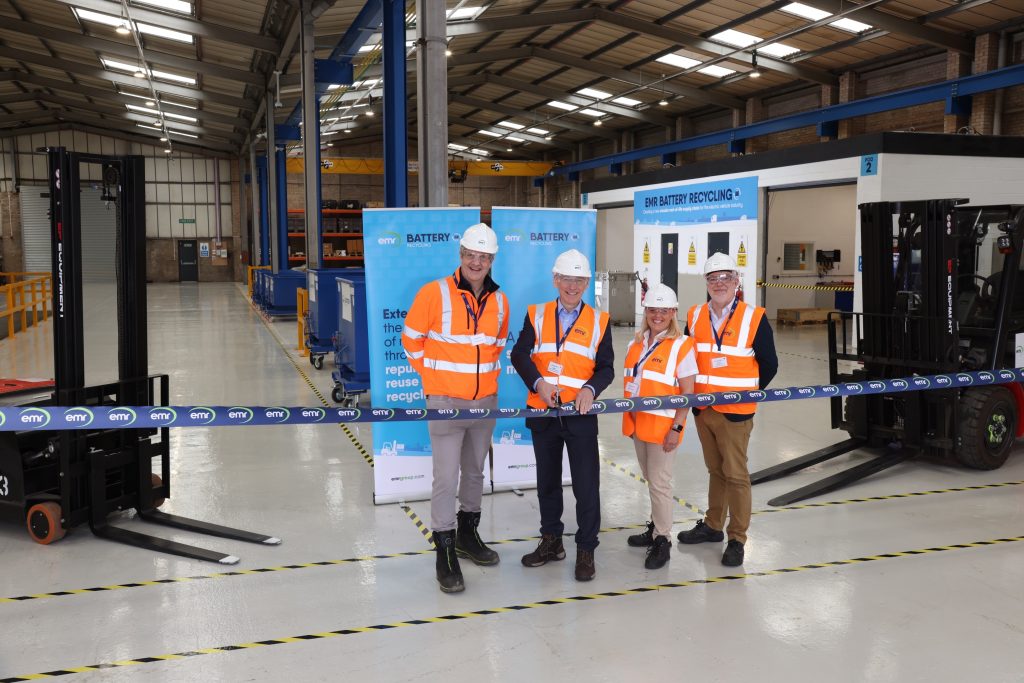The centre is EMR’s second such facility. In 2024 EMR opened a site in Hamburg, Germany, in partnership with Northvolt, one of Europe’s largest battery manufacturers.
The opening of the Birmingham facility was attended by partners from the RECOVAS consortium such as Bentley, Jaguar Land Rover, and BMW.

The facility will have the capacity to test for reuse or repair, or process batteries ready for shredding, handling more than 2,000 tonnes of batteries per year.
These high-performance EV batteries will be essential in enabling the automotive industry to decarbonise in the years ahead, so it is vital that they can be sustainably reused, remanufactured, or recycled to safeguard the valuable resources in them, including cobalt, lithium, and nickel.
As the UK’s largest end-of-life vehicle (ELV) recycler. Batteries arriving at the site – initially sourced via product recalls, warranty failures, and end-of-life e-bikes and e-scooters – will be assessed to determine whether the battery pack can be reused in a new vehicle, remanufactured for use in the energy storage sector, or recycled.
The multi-million-pound plant follows EMR’s involvement in the RECOVAS consortium, a collaborative research and development project launched in 2020 with grant funding from the Department for Business and Trade via the Advanced Propulsion Centre UK (APC).
The project’s aim is to develop the UK’s first commercial-scale recycling facility for automotive battery packs.
“By creating a circular supply chain for EV batteries, we are not only supporting the UK’s transition to net zero, but we are also setting a benchmark for others to follow in this rapidly evolving industry,” says EMR CEO Chris Sheppard.
